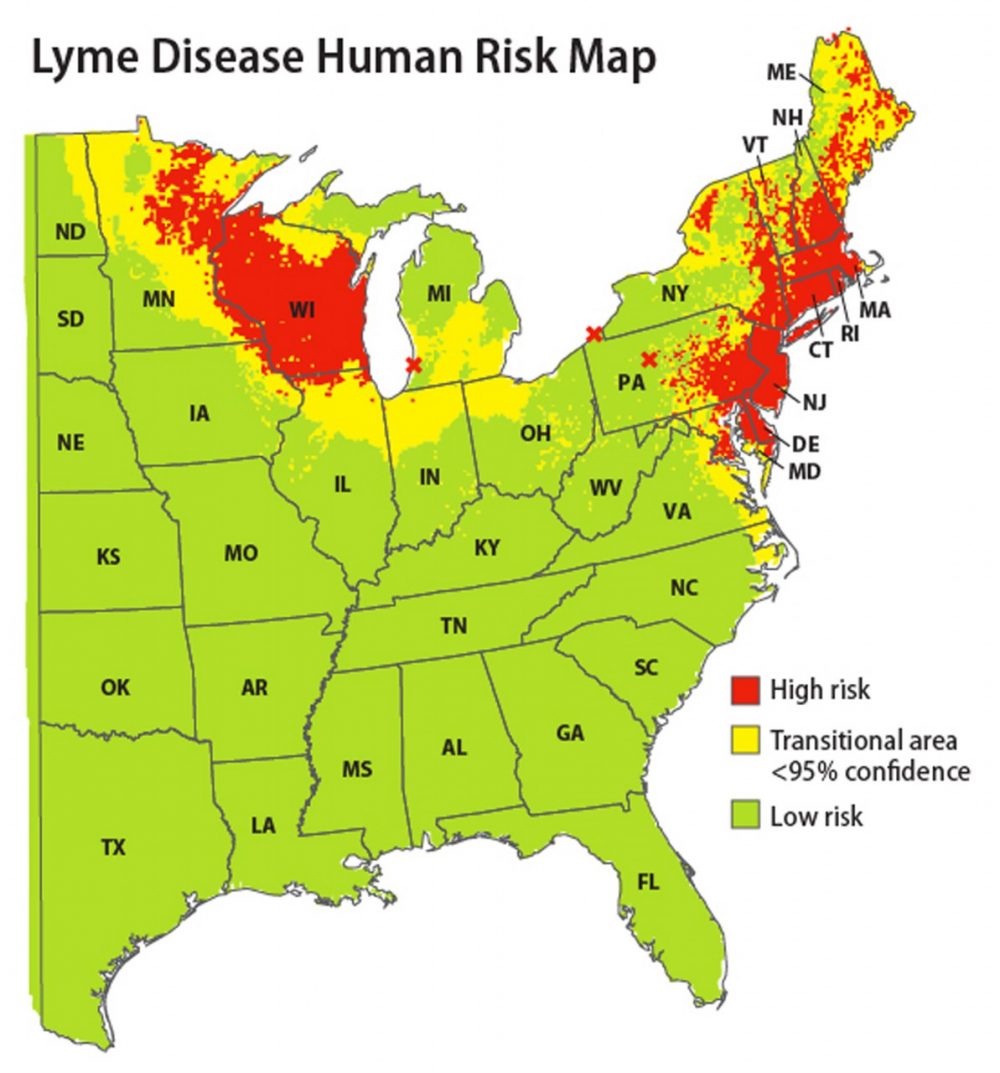Advertisement
Coming Soon: Human Testing Of Springtime Shot Against Lyme Disease

This is my fantasy: I can once again venture out into the New England woods without tucking my pants into white socks, without spraying my shoes with insect repellent, without fear.
It can only be realized when we have fully effective protection against Lyme disease, so I'm closely following the progress of Massachusetts researchers who are developing an anti-Lyme injection meant to last several months, long enough to get through tick season.
In their latest update, the researchers say work on manufacturing the anti-Lyme antibodies has gone well, and they expect to begin testing the safety of the shot in humans by mid-2020.
If you're a fellow Lymelands dweller eager to volunteer, sorry. Dr. Mark Klempner, who leads MassBiologics, the publicly funded non-profit developing the injection, says the trial needs to be done in an area free of Lyme disease, so that it will be clear that antibodies in the blood come from the injection and not from previous exposure.
That means disappointing the many locals clamoring to participate: "I have people calling me all the time, volunteering before there's even a call for the study," he says. And towns "saying, 'Come to the community and do your study here.'"
MassBiologics is celebrating its 125th anniversary, including its storied history of making critical vaccines against diseases like diphtheria using serum from horses. The Lyme antibody, though, will involve no horses; it is made "in a steel tank, from cells," Klempner says.
It's not the only effort under way to protect against Lyme disease; a French company is testing a new vaccine in humans; it could become available in four or five years.
In the United States, Lyme disease vaccines are only available for dogs. But the MassBiologics effort is marching forward, backed by nearly $2 million in federal and state money. Klempner says one key goal is for the shot to be affordable when it becomes available, possibly as early as 2023 if all goes well.
The shot is known as "pre-exposure prophylaxis," not a vaccine, because it delivers anti-Lyme antibodies directly to the patient rather than triggering the patient's own immune system to make the antibodies as vaccines do.
Klempner says MassBiologics has made enough antibodies for the trial, and plans to seek permission from the FDA in late winter or early spring of 2020 for a human clinical trial, aiming to launch the testing by June.
The trial will look at safety and dosing in about 50 volunteers who will receive escalating doses. A later trial would look at how well the antibodies actually work against Lyme disease.
The volunteers will have to be followed for more than six months, to monitor whether the antibody levels in their blood are high enough to be effective. In animals, Klempner says, "it is both safe, and it lasts."
If "pre-exposure prophylaxis," or PrEP, sounds familiar, that's because it's now being used against HIV, with enough success that some are talking about it as the potential key to ending the spread of AIDS.
To those who question whether public money should be spent developing a shot against Lyme disease, Klempner responds that there is "a great deal of reticence" among investors to bet on vaccines.
"It's a very difficult economic model," he says. But MassBiologics, as a nonprofit with a public health mission, has this advantage: "We don't have to first ask the question: Will this be profitable?"
